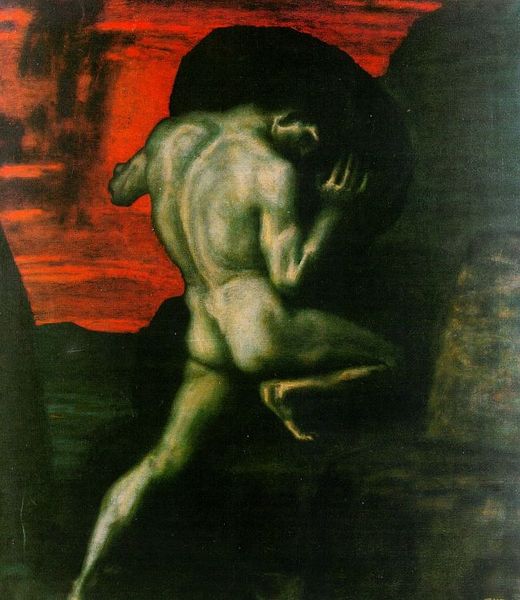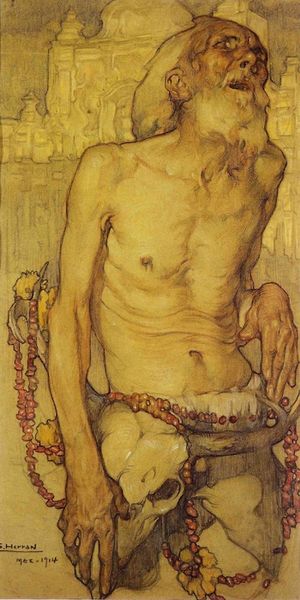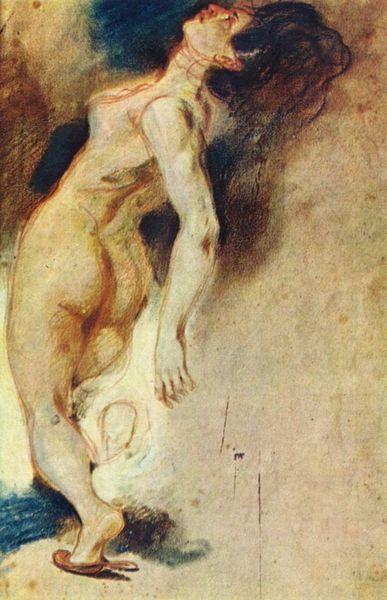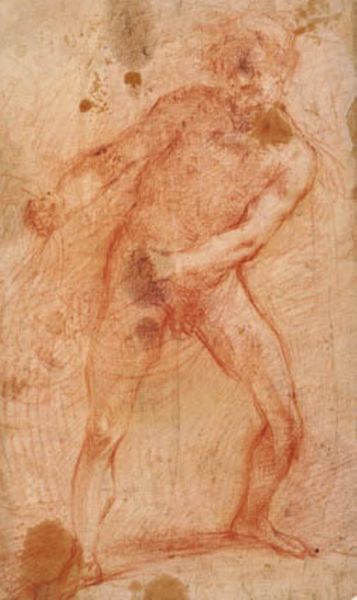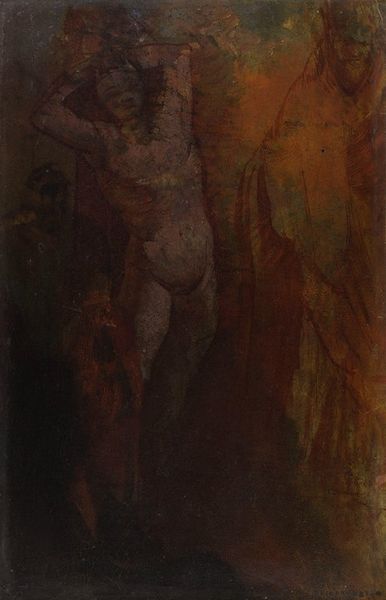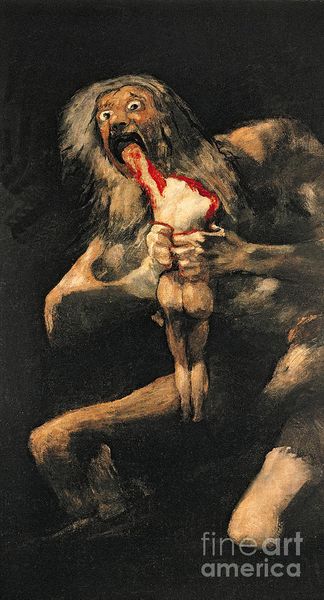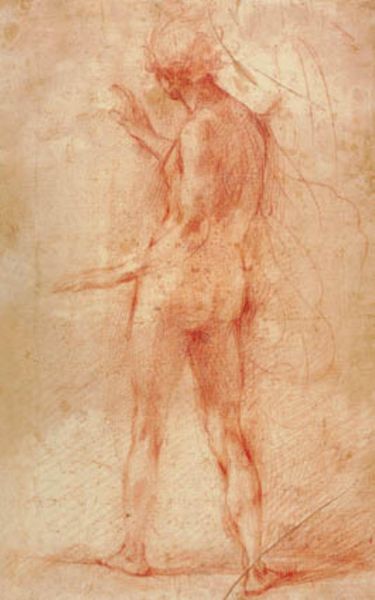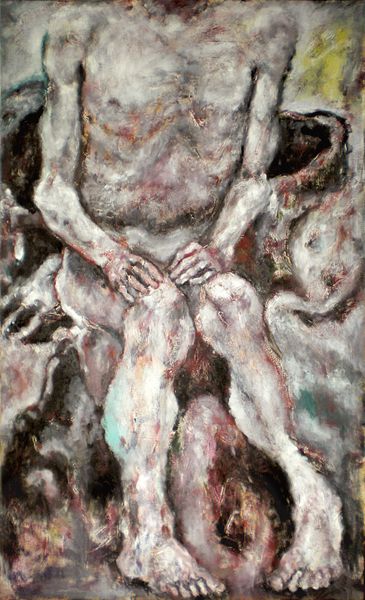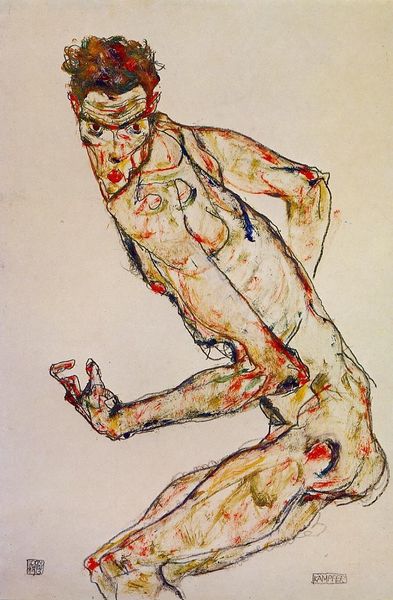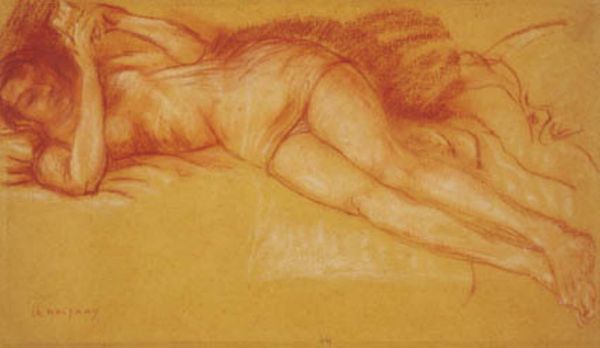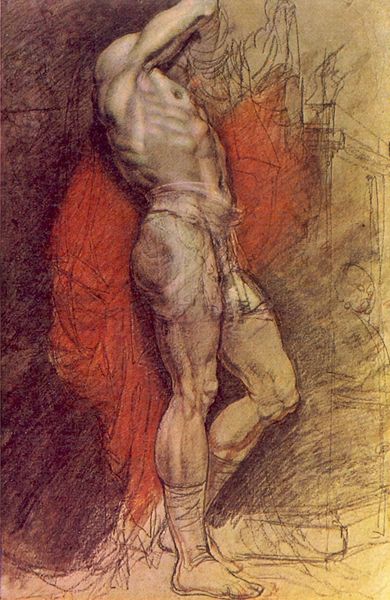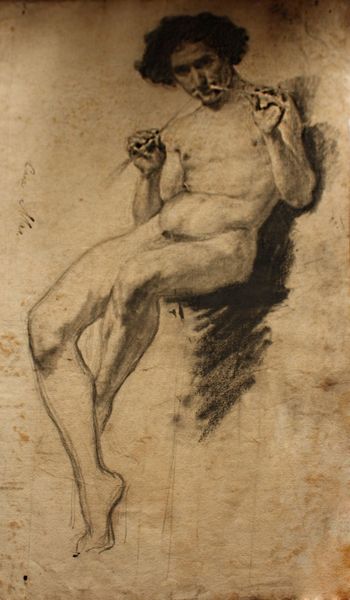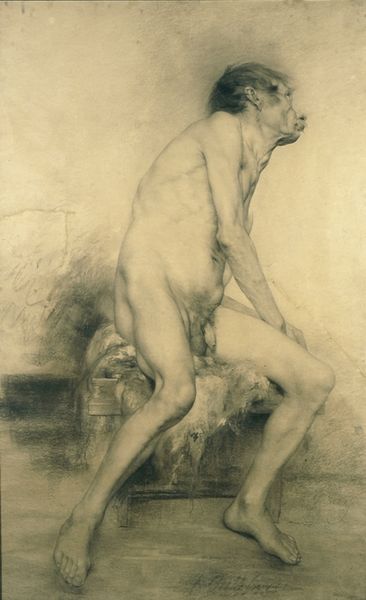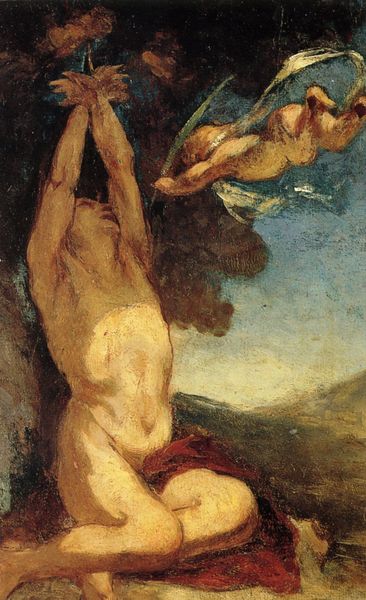
oil-paint
#
portrait
#
oil-paint
#
charcoal drawing
#
figuration
#
oil painting
#
neo expressionist
#
expressionism
#
human
#
nude
Copyright: Public domain US
Editor: This is Max Oppenheimer's 1911 oil painting, "Bleeding." It's... intense. The figure’s pose, combined with the blood, evokes feelings of suffering and vulnerability. What kind of statement do you think Oppenheimer was trying to make with this raw depiction? Curator: The intensity you perceive absolutely resonates with its historical context. Early 20th-century Vienna, where Oppenheimer worked, was a hotbed of intellectual and artistic ferment but also rife with social and political anxieties. Expressionism, with its focus on subjective experience, became a potent means to engage with the alienation and unease of modern life. "Bleeding," in that light, functions as more than just a portrait, don't you think? Perhaps it's a social critique. Editor: A critique of what, specifically? The art world, the politics... or something else entirely? Curator: I think it's important to see this as a challenge to the traditional heroic male nude. The idealized male form, celebrated for centuries, is here presented as wounded and exposed. By showing this, Oppenheimer implicitly critiques institutions that perpetuate such mythologies and perhaps also challenges society's expectations of masculine stoicism in the face of emotional pain. Does that shift how you view the work at all? Editor: Definitely. Framing it as a subversion of established artistic and social norms provides a richer context. So, its rawness isn't just about shock value? Curator: Precisely. The politics of imagery, as I mentioned before, are at play here. Oppenheimer is participating in a broader dialogue about the role of art in reflecting and shaping societal values. He makes it difficult, in my opinion, for us to disengage or turn away from difficult truths. Editor: I see. Thinking about "Bleeding" in terms of social critique really reframes the artwork’s power and intent. Curator: Indeed. It makes one consider how the socio-political climate always plays a part, doesn't it?
Comments
No comments
Be the first to comment and join the conversation on the ultimate creative platform.
